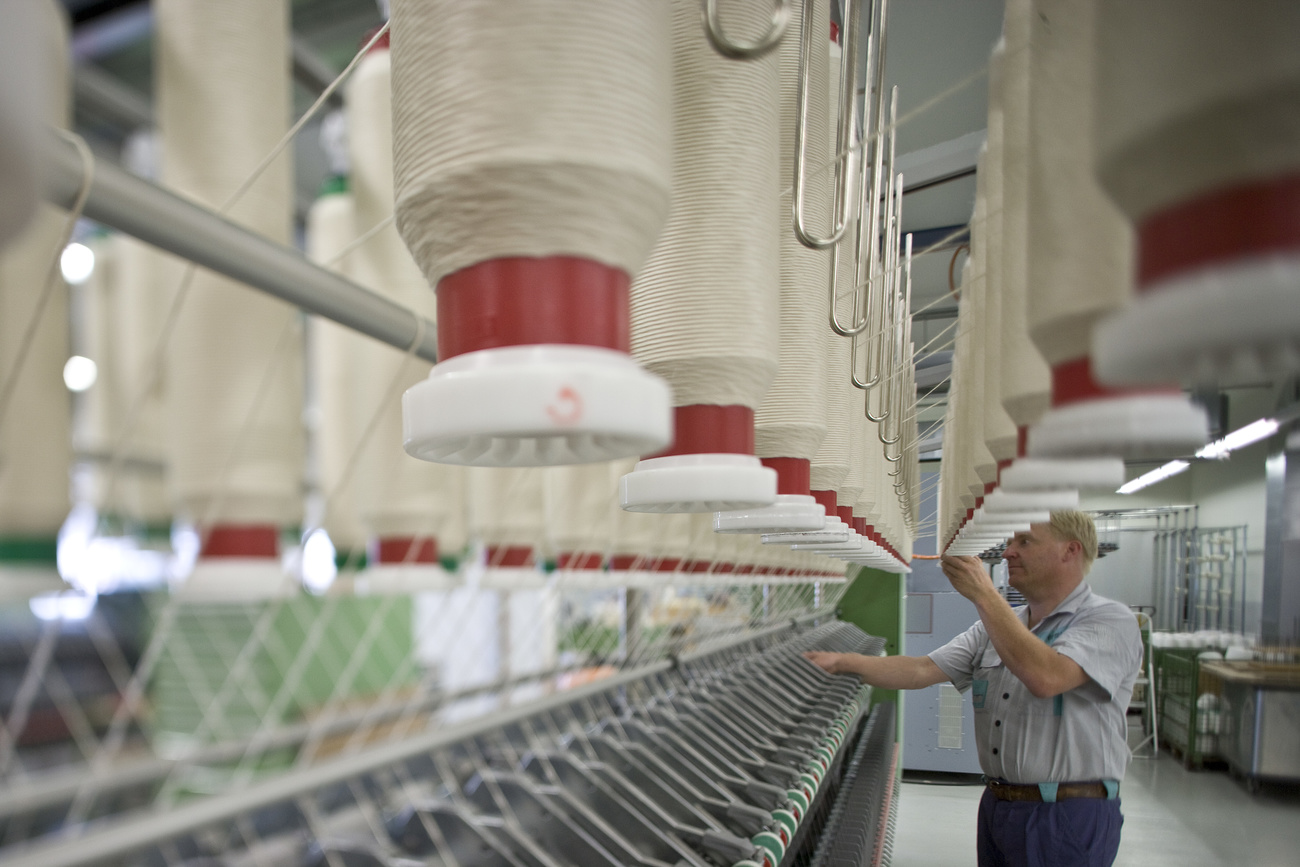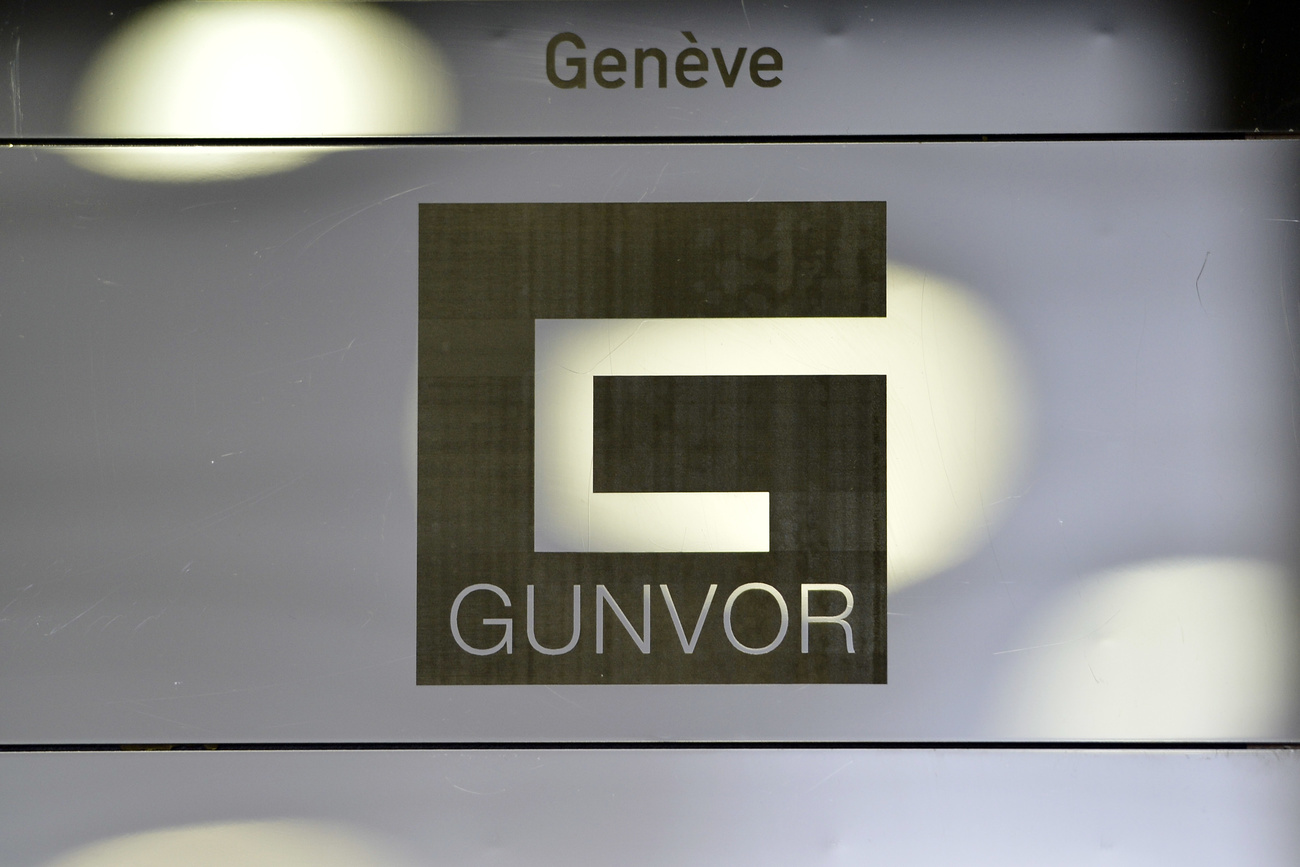When companies can’t look to Twitter to set their moral agenda
Labour rights activists are calling Xinjiang a “profound moral testExternal link” for companies like H&M and Nike but it’s clear that consumers are driving the moral agenda. What does this mean for an industry without a Twitter following?
If you look closely at a textile factory in Xinjiang, China, there’s a good chance you’ll see the name of a Swiss brand on some sophisticated machinery. In the niche market of spindles, dobbies and knitting machines, Swiss companies like Rieter and Uster are important players.
In 2017, Switzerland was the largest exporter of knitting accessories such as spindles and spare parts to Xinjiang, where there are allegations of wide-scale repression and forced labour of minorities.

More
The Swiss textile machinery industry has a China dilemma
What is the responsibility of these companies? For human rights defenders, the answer is: denounce repression and distance yourselves.
But untangling these associations isn’t easy for such an industry that relies so heavily on China. Some of the biggest Swiss companies are in the hands of Chinese investors. There are other thorny questions. What should a company do about a machine that has a working life of 10 to 20 years?
While H&M can look to its more than 8 million Twitter followers for some signals, a machinery company like Rieter with its 322 followers is left to set its own moral agenda.
What else caught my eye?
Nestlé upsets trade unions in Brazil over plans to cut food vouchers. The Swiss food giant has been halving food voucher benefits, often offered by companies to supplement salaries, at various factories in Brazil. This comes at a tough time for workers dealing with the pandemic’s devastating toll and rising food prices. Trade unions in the country say they’ve been pushed into a corner to either accept the food cuts or face layoffs as labour laws have made outsourcing easier.

More
Nestlé attacks food benefits of Brazilian workers during the pandemic
A proposal for a global minimum corporate tax rate could change the game for Switzerland. According to the Tages-Anzeiger, the US proposal for a global minimum tax rate on multinationals threatens Switzerland’s “tax paradise” statusExternal link and competitive advantage. The effective corporate tax rate in the country is 12%, which is far below the proposed 21%. A recent report found that Switzerland is responsible for 5.1% of global tax avoidance losses, which includes over $10 billion from multinational companies moving profits to the country to pay lower taxes.
Tensions over vaccine production boil over in Switzerland. Conflicting reports emerged over the last few weeks about whether the Swiss government missed a chance to secure its own manufacturing capacity at Lonza’s plant in southern Switzerland. While the truth may be somewhere in between, the saga has triggered debate about whether it is even feasible to have national productionExternal link and self-sufficiency when it comes to vaccines. Adding urgency, is a move by the EU to restrict vaccine exports to Switzerland.
Another commodity trader gets caught for bribery. This time, a representative of Gunvor pleaded guilty in a US court to helping channel more than $22 million (CHF20.4 million) in bribes to high-level officials in Ecuador in exchange for lucrative contracts with the state-run oil company. Gunvor referred to the guilty party as a “former agent” and said it is taking steps to ban the use of agents in business development.
This isn’t the first offence for Gunvor. In 2019, Swiss authorities ordered the company to pay nearly CHF94 million in compensation and fines for failing to stop its representatives from bribing public officials in Africa.
Feedback or story tips? Send me a message: jessica.davis@swissinfo.ch
Thanks for reading.

In compliance with the JTI standards
More: SWI swissinfo.ch certified by the Journalism Trust Initiative




Join the conversation!